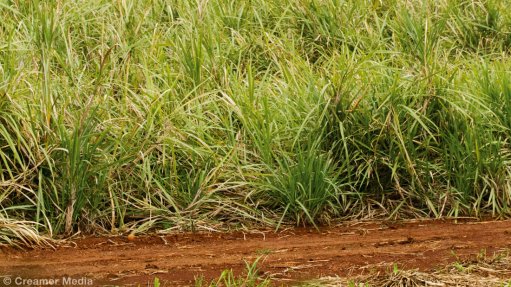
Photo by: Duane Daws
Rising demand and a subsequent recovery in international sugar prices would contribute to a positive long-term outlook for sugar companies in sub-Saharan Africa (SSA), provided that the producers were able to withstand the current price volatility and market conditions.
This was according to investment banking and asset management group Imara, which released its 2013 SSA Sugar Sector report this week.
The report stated that global sugar production was at a record level, with the US Department of Agriculture forecasting production of 175-million tonnes for 2013/14. Demand was likely to amount to 167.35-million tonnes.
“However, global sugar consumption has been growing at a compound annual growth rate of 2% for the past five years and, should this trend continue in the long run, we do not see the current sugar market surpluses as being sustainable,” Imara said, adding that this would affect the global sugar price and subsequently impact positively on sugar companies.
Similarly, the outlook for sugar demand and consumption in SSA remained positive, owing to several key drivers, such as rising populations, rising income levels and rising urbanisation rates.
Currently, Egypt and South Africa were the top sugar producers in Africa, contributing more than 40% of the total sugar produced on the continent.
Meanwhile, the report stated that, while white sugar prices in the European Union (EU) remained firmly above world market prices, the programmes under which African countries have been exporting to Europe were being phased out and the preferential price benefit of selling into the EU was being eroded.
“Of all the African countries we currently cover, we expect Mauritius, which has traditionally been one of the biggest African exporters into the EU, to be affected the most as the gradual quota removal will impact most of its major producers’ revenues significantly.
“Nevertheless, most of the sugar-producing companies we cover in SSA will be affected to varying degrees by the phasing out of export quotas by the EU over the medium term. As a result, they may need to overhaul and restructure their operations significantly in order to remain profitable and competitive,” Imara said.
Further, the company also expected several legislative changes to be made that would have a material impact on several sugar producers across SSA.
The first of these was the expiry of the Common Market for Eastern and Southern Africa (Comesa) tariffs and safeguards in March next year.
The removal of duties and tariffs for Comesa countries is expected to materially impact competition within Kenya, one of the region’s main markets. Kenyan sugar producers, such as Mumias, will be negatively affected owing to current high costs of production for sugar, the company said.
Further, the report expected a more positive legislative environment to prevail for sugar manufacturers in West Africa, where consumption and demand levels have regularly exceeded production levels over the last few years.